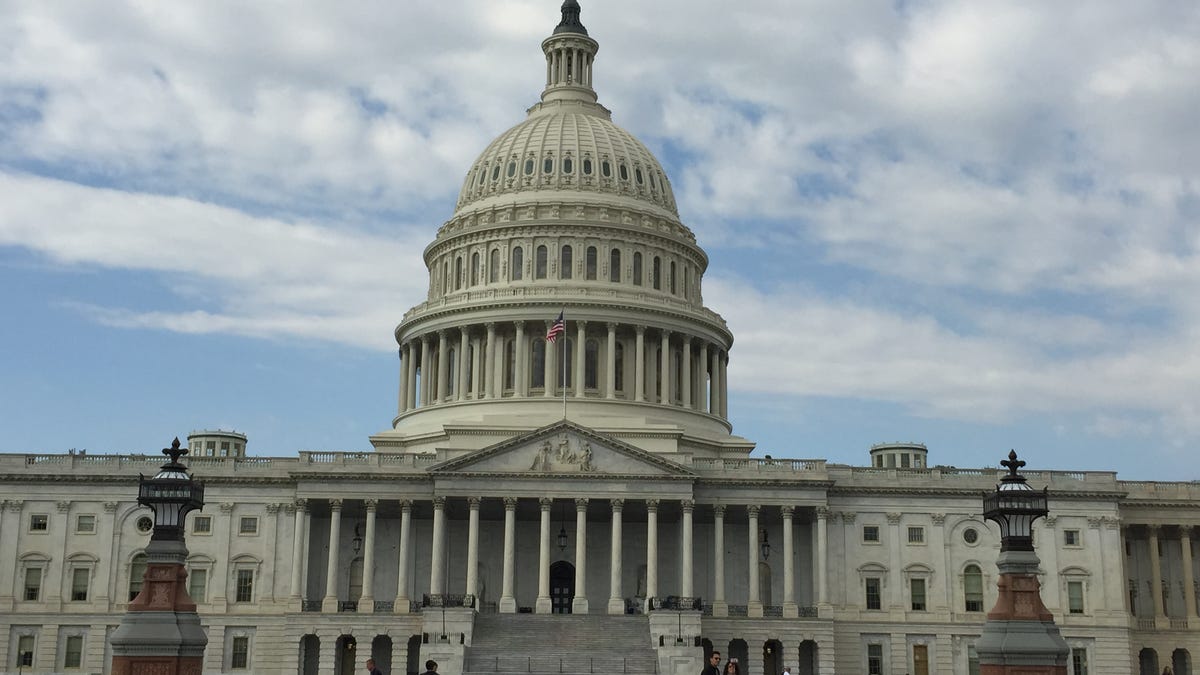 Why You Can Trust CNET
Why You Can Trust CNET Senate introduces bipartisan infrastructure bill with billions for broadband
The roughly $1 trillion spending package includes funding for high-speed internet.

The Senate could pass the bill before its August recess begins.
The group of senators has finished drafting a bipartisan infrastructure bill that includes billions of dollars to try to ensure that all Americans can access broadband. The roughly $1 trillion spending package has arrived after months of wrangling. A final Senate vote on the bill could happen within days.
The more than 2,700-page bill was unveiled during a rare Sunday night session after a bipartisan group of negotiators -- led by Sen. Kyrsten Sinema, a Democrat from Arizona, and Sen. Rob Portman, a Republican from Ohio -- worked on the legislation through the weekend.
"This is a really important bill because it takes our aging and outdated infrastructure in this country and modernizes it. And that's good for everybody," said Portman. "We're getting it right tonight for the American people, for our economy, and for the future of our great country."
Locating local internet providers
Last week, Senate negotiators announced they'd reached a deal on the infrastructure package. President Joe Biden welcomed the news and said it showed America can still "do big things."
"This deal signals to the world that our democracy can function," Biden said ahead of a procedural motion to advance the measure. "We will once again transform America and propel us into the future."
Locating local internet providers
In addition to funding projects for traditional infrastructure, such as roads, bridges and public transit, the bill calls for funding of electric vehicle charging stations and high-speed broadband. Specifically, there will be a $65 billion "investment ensuring every American has access to reliable high-speed internet," according to the White House. (This figure has been scaled back from Biden's original proposal of $100 billion in broadband spending.)
The investment in broadband comes as policy makers acknowledge that high-speed internet access has become as vital to American life as electricity. The COVID-19 pandemic and lockdowns over the past year have shown how important broadband is to ensure that Americans (whose jobs allow it) can work, access education and receive health care remotely.
As many as 30 million Americans live in areas where there is no broadband infrastructure to provide minimally acceptable speeds, according to the White House. It's a problem known as the digital divide, and it's dogged policy makers for years.
The broadband details
In addition to making sure that broadband infrastructure is available to all Americans, the legislation will also help make broadband service more affordable by requiring companies receiving federal subsidies to offer low-cost service plans. It will also require broadband providers to be more transparent about their pricing so consumers can comparison shop.
The White House said it will also "boost competition" in areas where existing providers aren't providing adequate service, although how the legislation does this is still vague.
The legislative package includes language from the Digital Equity Act, a bill introduced in March meant to provide funding to programs that promote digital literacy and access for low-income Americans. As part of this effort, the bill is expected to help subsidize the cost of broadband for low-income families and help pay for devices like laptops and tablets.
Earlier this year the Federal Communications Commission began administering the Emergency Broadband Benefit program, which offers a $50 a month subsidy to people struggling to pay their broadband bill. The funding for the program came from congressional COVID relief funding.
The White House also said the infrastructure legislation will aim to end the practice of digital redlining, or the practice of broadband companies refusing to provide or build access to service in areas deemed to be a financial risk.
Next steps
The unveiling of the legislation on Sunday could allow the Senate to pass the infrastructure bill before the chamber adjourns for its summer recess. While the breakthrough was important, the legislation could still fail.
The amendment process is expected to kick off on Monday. Senate Majority Leader Chuck Schumer on Sunday night said he believes that the "Senate can quickly process relevant amendments and pass this bill in a matter of days," according to CNBC.
If it passes the Senate, the bill then moves to the House, where progressive Democrats are likely to continue to push for more funding and Republicans will likely balk. The outcome of this legislative package will also likely set the stage for the next big debate over Biden's more ambitious spending package, which totals $3.5 trillion. That package includes programs and services for items like child care, tax breaks and health care, which Biden says are important to building America's human infrastructure. Republicans strongly oppose that legislation, which Democrats hope to pursue through a budget reconciliation process that would require only a simple majority vote in both chambers.
Read the full bill
CNET's Carrie Mihalcik contributed to this report.